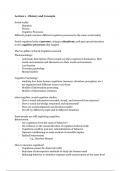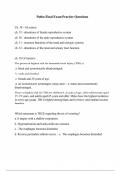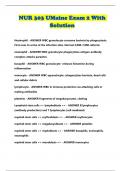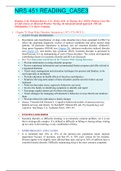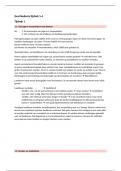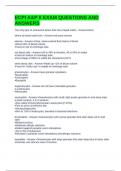Samenvatting
Summary Social Cognition Notes (Lecture 1-11)
- Instelling
- Tilburg University (UVT)
Very comprehensive notes for the course Social Cognition. I have notes from the lecture slides and detailed summary for most of the specific experiments discussed in the lectures so you can understand more than just reading the slides
[Meer zien]
